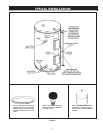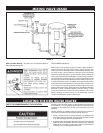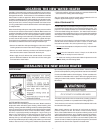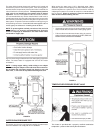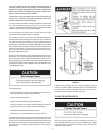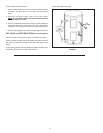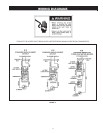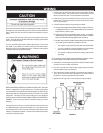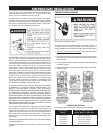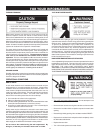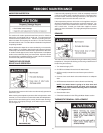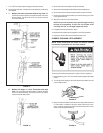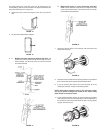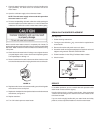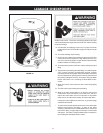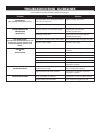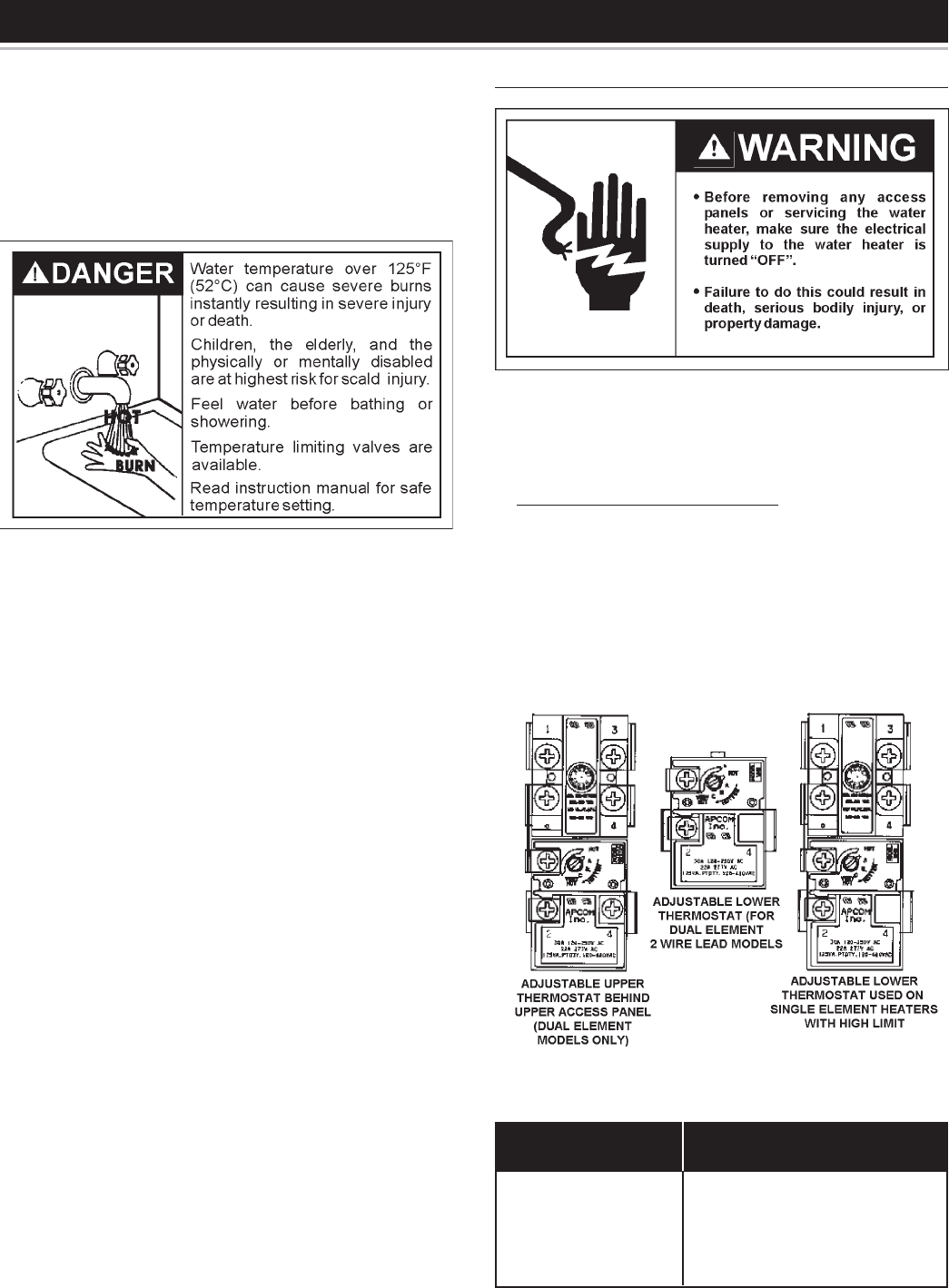
13
TEMPERATURE ADJUSTMENT
To change the temperature setting:
NOTE: It is not necessary to adjust the upper thermostat. However, if it
is adjusted above the factory set point (120°F (49°C)/HOT) it is
recommended that it not be set higher than the lower thermostat setting.
1.
Turn “OFF” the heater electrical supply. Do not attempt to adjust
thermostat with power on.
2. Remove the thermostat outer doors and insulation covers from the
thermostats. Do not remove the plastic personnel protectors covering
the thermostats.
3. Using a flat tip screwdriver, rotate the adjustment knob to the desired
temperature setting.
4. Replace the insulation covers and outer doors and turn “ON” heater
electrical supply.
TEMPERATURE SETTINGS
It is recommended that the dial be set lower whenever possible.
Temperature Time to Produce 2nd & 3rd
Setting Degree Burns on Adult Skin
160°F (71°C) About 1/2 second
150°F (66°C) About 1-1/2 seconds
140°F (60°C) Less than 5 seconds
130°F (54°C) About 30 seconds
120°F (49°C) More than 5 minutes
FIGURE 9.
Due to the nature of the typical water heater, the water temperature in
certain situations may vary up to 30°F (16.7 °C) higher or lower at the
point of use such as, bathtubs, showers, sink, etc.
Any water heater’s intended purpose is to heat water. Hot water is
needed for cleansing, cleaning, and sanitizing (bodies, dishes, clothing).
Untempered hot water can present a scald hazard. Depending on the
time element, and the people involved (adults, children, elderly, infirm,
etc.) scalding may occur at different temperatures.
HOTTER WATER CAN SCALD: Water heaters are intended to produce
hot water. Water heated to a temperature which will satisfy space
heating, clothes washing, dish washing, and other sanitizing needs
can scald and permanently injure you upon contact. Some people are
more likely to be permanently injured by hot water than others. These
include the elderly, children, the infirm, or physically/mentally
handicapped. If anyone using hot water in your home fits into one of
these groups or if there is a local code or state law requiring a certain
temperature water at the hot water tap, then you must take special
precautions. In addition to using the lowest possible temperature setting
that satisfies your hot water needs, a means such as a mixing valve,
shall be used at the hot water taps used by these people or at the
water heater. Mixing valves are available from your local plumbing
contractor. Follow manufacturer’s instructions for installation of the
valves. Before changing the factory setting on the thermostat, read
the “Temperature Regulation” section in this manual.
THIS WATER HEATER IS EQUIPPED WITH AN ADJUSTABLE
THERMOSTAT TO CONTROL WATER TEMPERATURE. HOT
WATER TEMPERATURES DESIRED FOR AUTOMATIC
DISHWASHER AND LAUNDRY USE CAN CAUSE SCALDS RESULTING
IN SERIOUS PERSONAL INJURY AND/OR DEATH.
THE TEMPERATURE AT WHICH INJURY OCCURS VARIES WITH THE
PERSON’S AGE AND THE TIME OF THE EXPOSURE. THE SLOWER
RESPONSE TIME OF CHILDREN, AGED OR DISABLED PERSONS
INCREASES THE HAZARDS TO THEM. NEVER ALLOW SMALL
CHILDREN TO USE A HOT WATER TAP, OR TO DRAW THEIR OWN
BATH WATER. NEVER LEAVE A CHILD OR DISABLED PERSON
UNATTENDED IN A BATHTUB OR SHOWER.
It is recommended that lower water temperatures be used to avoid the
risk of scalding. It is further recommended, in all cases, that the water
temperature thermostat be set for the lowest temperature which
satisfies your hot water needs, see Figure 9. This will also provide the
most energy efficient operation of the water heater. Thermostat(s)
are factory set at 120°F (49°C) unless specified differently by state
requirements.
KEEPING THE THERMOSTAT SETTING AT 120°F (49°C) WILL REDUCE
THE RISK OF SCALDS.
Figure 9 shows the approximate time-to-burn relationship for normal
adult skin.
TEMPERATURE REGULATION



